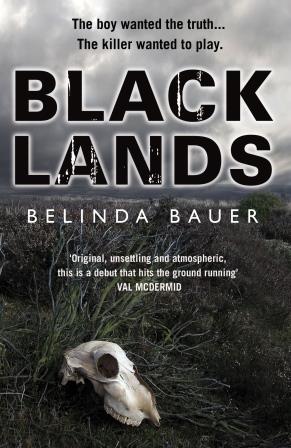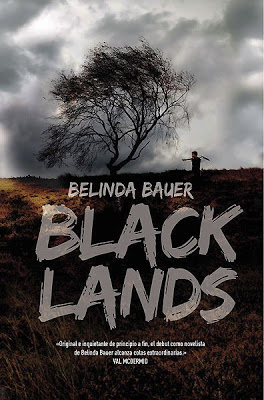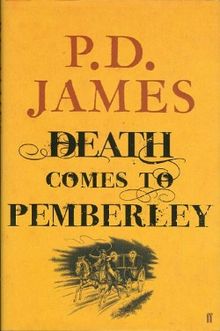
The image of an animal’s skull on the cover promised mystery and death.
Add that to a recommendation by Val McDermid and I was quite happy to read Bauer’s debut crime novel.
The idea: writing to a serial killer
Bullied at school, ignored by teachers and overlooked at home, Steven Lamb is not enjoying his childhood. His mum, Lettie, is miserable and his Nan spends all day staring out of the living room window, waiting for his uncle to return home after twenty years spent missing. Uncle Billy is presumed dead, courtesy of local serial killer Arnold Avery. Steven feels sure that producing the bones of his long-dead uncle will somehow make life better; unfortunately, Avery has never even admitted to killing Billy, let alone revealed the location of the body. When digging on the moor reveals nothing but dead cows, Steven tries a new tactic: writing to his uncle’s killer.
The result: letters from a child murderer
Steven’s innocent earnestness is contrasted with Avery’s sly and manipulative nature in a story which becomes gradually darker. As Steven’s life unfolds in realistic but saddening scenes he becomes an intensely sympathetic character. Simultaneously, Avery becomes a more threatening figure, especially when he realises just who he’s writing to…
A gripping story
Bauer creates an appealing character in Steven who does not seem to deserve the alternately brutal and passive responses he receives from other characters. I was interested in his plight from the beginning when Bauer reveals him digging doggedly on Exmoor in the pouring rain. After this atmospheric beginning, his life is gradually revealed in a way that accepts his situation without judging. The school bullies are barely individuated and, although Steven seeks to avoid them, they are really just another problem he has to deal with. The inevitable labelling of Billy’s Nan as ‘poor Mrs Peters’ is established early on and feels both horrible and ‘right’ given the small town setting. The bullies are not evil; the town’s whispers are not horrible; both situations just exist and Steven copes as best he can. I felt that he was a very realistic character as a result of this. His grotesque but innocent ambition to heal his family by presenting them with the bones of his uncle’s corpse felt convincing and the whole ‘set up’ of the story felt very natural.
Similarly, Avery is quickly established as a deeply unappealing character. His conviction that a would-be victim was responsible for ‘ruining everything’ leads to an act of brutality that he is unmoved by. He does, however, learn to keep his thoughts inside. Bauer builds up evidence of Avery’s cunning so that his later actions seem plausible, even inevitable. I found his character both awful and convincing. What makes the story so frustrating is the desire to warn Steven just what he is dealing with.

A strong sense of place
Although the story focuses primarily on Steven and Avery’s characters, the third person narration means that Steven’s mum and his Nan also become sympathetic figures. Lettie burns with injustice. Gloria simply waits and snipes. The focus on generational suffering is deliberate and acute. ‘Blacklands’ was inspired when Bauer saw the mother of a long-murdered child on TV and considered the impact of this sort of crime on families years after from the event. She was careful not to include specific references to the case that first led her to this topic as she did not wish to cause more distress to the family, or to write about a particular case. Fortunately, I have no personal experience in this area, but the disintegration of a family after such a deeply traumatic experience felt convincing.
The plot held together credibly throughout and the ending was dramatic and gave a sense of closure. I like endings where there is a definite sense of closure, so this appealed to me. I felt quite satisfied when I closed the book.
One of McDermid’s comments was that this was a very ‘atmospheric’ book and I certainly agree. From the opening pages Exmoor is vividly evoked, as is the sheer violence of the weather Steven frequently faces there. I particularly liked this aspect of the book as I felt that I was able to visualise the places in the story.
Killer coincidence?
Two aspects of the story have come in for criticism. One relates to an incident to do with the prison and seems unjustified as Bauer is able to recount a real-life incident with notable similarities. I find the other criticism far harder to dislodge. Towards the end of the story, Bauer sets up a completely unnecessary and (in my view) unjustified coincidence involving a minor character in the story. When I first read the relevant passage, I actually didn’t really notice the coincidence: in fact, I was simply a little confused by the abrupt switch in perspective and detailed build-up. I don’t think I actually noticed the coincidence until Bauer mentioned it during an author visit at my local library. It seems daft, then, that such a minor detail would in any way detract from my overall experience of the book…but it has. I feel that plausibility was sacrificed for a neat link and a cheap laugh in what was otherwise a serious crime novel. Bauer’s defence is that coincidences happen all the time in real life, which is true, and yet…it irks me.
An adult novel?
Something else that was mentioned during the book group session was the intended audience of the novel. When I was reading the book I felt quite strongly that it was a book for teens or YA readers. However, it has been marketed as an adult crime fiction novel. I do not feel that it is a criticism to say that this was a sentiment echoed by a few other members of the audience at the library session. (Many books for YA readers are superb – check out the Carnegie Award for examples.) Interestingly, Bauer herself agreed that she had felt it could be seen as a YA book, but said that her publishers had felt that it was too dark for younger readers. The themes are dark, certainly, but they are handled with a certain naivety and a distinct lack of gore or (as one reviewer put it “torture porn”) and I would be happy to recommend this to YA readers.
Conclusions
This is a chilling read which is atmospheric and gripping. It has sympathetic characters and an interesting central concept. Perhaps the second half of the book is a little predictable, but not in an ‘oh, here we go…’ way at all, more like an ‘OMG I bet that – ’ way. I enjoyed reading it and feel it’s suited to a wide audience as it’s psychological horror rather than a gore-fest. One irksome coincidence aside, it was a good read.
‘Blacklands’,
Belinda Bauer,
2010, Corgi, paperback


